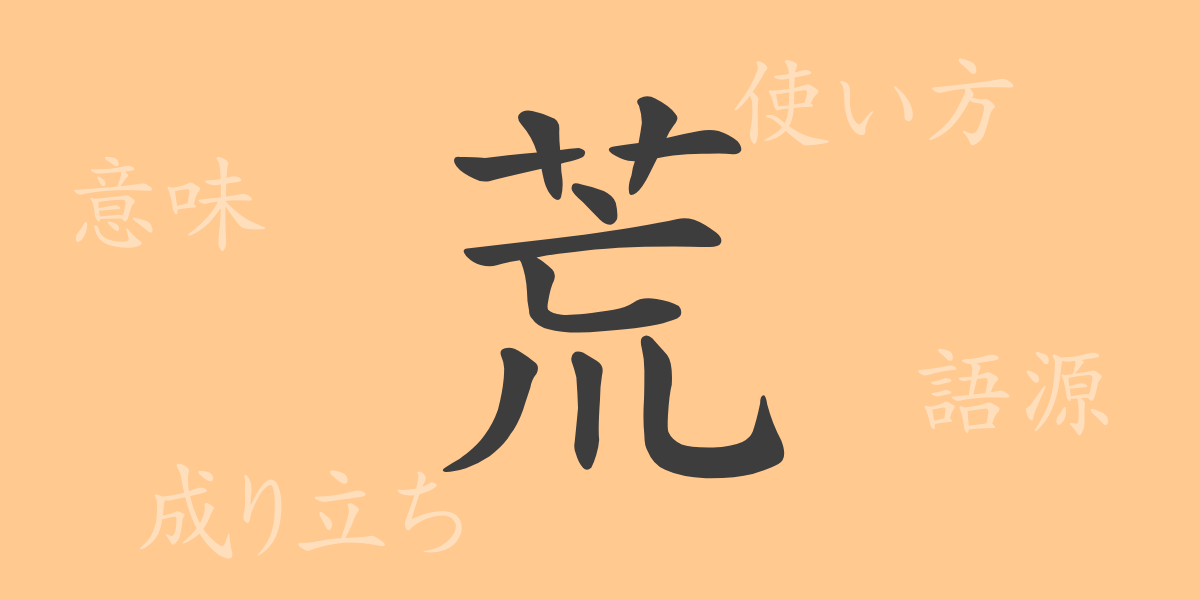The beauty of the Japanese language lies in its complexity, with each kanji character often telling a deep story. “荒(こう)” is one such commonly used kanji, representing the powerful forces of nature and a range of human emotions. This article delves into the origins and usage of “荒(こう)”, exploring its fascinating aspects.
Origin of 荒(こう)
The kanji “荒(こう)” originates from ancient China, initially depicting strong, howling winds. It started as a pictograph representing vegetation being tossed by the wind and evolved into its current form over time. This history reflects its beginnings as a primitive character representing natural phenomena.
Meaning and Usage of 荒(こう)
“荒(こう)” means “wild”, “rough”, or “barren”. It is often used to describe tumultuous natural conditions, such as rough seas or stormy weather, indicating a state of severe change. It can also describe a disturbed state of mind or something being neglected or crude. It is commonly used as both an adjective and a noun.
Readings, Stroke Count, and Radical of 荒(こう)
The kanji “荒(こう)” has various readings in Japanese.
- Readings: The on-yomi (Chinese reading) is “コウ(こう)”, and the kun-yomi (Japanese readings) are “あら-(ara-)”, “すさ-(susa-)”.
- Stroke Count: “荒(こう)” consists of 11 strokes.
- Radical: The radical is 艸(くさかんむり, kusakanmuri), meaning “grass”.
Idioms, Phrases, and Proverbs Using 荒(こう)
There are many idioms, phrases, and proverbs containing “荒(こう)”. Here are a few examples:
- 荒波(あらなみ, aranami): Large, rough waves, often used metaphorically to describe life’s difficulties.
- 荒野(こうや, kouya): Untouched, natural wilderness or an expansive, open area.
- 荒れ狂う(あれくるう, arekuruu): Describes fierce movements of wind or waves; can also depict extreme emotional turmoil.
- 荒唐無稽(こうとうむけい, koutoumu kei): Refers to a baseless, absurd story or behavior.
- 荒蕪(こうぶ, koubu): Describes an overgrown, neglected place where no one lives, emphasizing desolation.
Conclusion on 荒(こう)
The kanji “荒(こう)” is a multifaceted character used to depict the wildness of nature and the turbulence of human emotions. From its origins to its modern-day usage, readings, and idioms, this character carries a rich history and cultural significance. Understanding the meanings behind each kanji character is the first step towards appreciating the depth of the Japanese language.

























